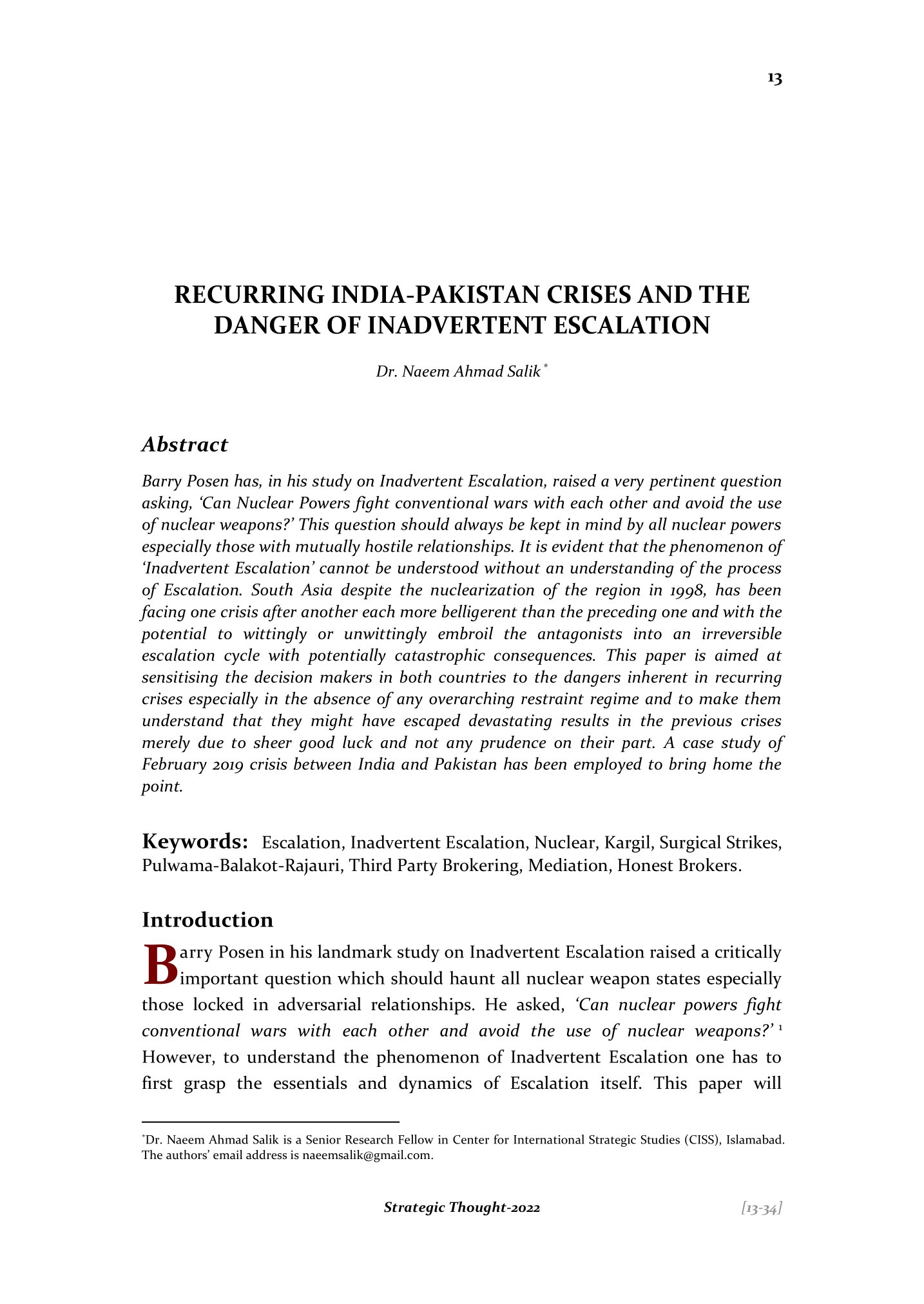RECURRING INDIA-PAKISTAN CRISES AND THE DANGER OF INADVERTENT ESCALATION
Keywords:
Escalation, Inadvertent Escalation, Nuclear, Kargil, Surgical Strikes, Pulwama-Balakot-Rajauri, Third Party Brokering, Mediation, Honest BrokersAbstract
Barry Posen has, in his study on Inadvertent Escalation, raised a very pertinent question asking, ‘Can Nuclear Powers fight conventional wars with each other and avoid the use of nuclear weapons?’ This question should always be kept in mind by all nuclear powers especially those with mutually hostile relationships. It is evident that the phenomenon of ‘Inadvertent Escalation’ cannot be understood without an understanding of the process of Escalation. South Asia despite the nuclearization of the region in 1998, has been facing one crisis after another each more belligerent than the preceding one and with the potential to wittingly or unwittingly embroil the antagonists into an irreversible escalation cycle with potentially catastrophic consequences. This paper is aimed at sensitising the decision makers in both countries to the dangers inherent in recurring crises especially in the absence of any overarching restraint regime and to make them understand that they might have escaped devastating results in the previous crises merely due to sheer good luck and not any prudence on their part. A case study of February 2019 crisis between India and Pakistan has been employed to bring home the point.





